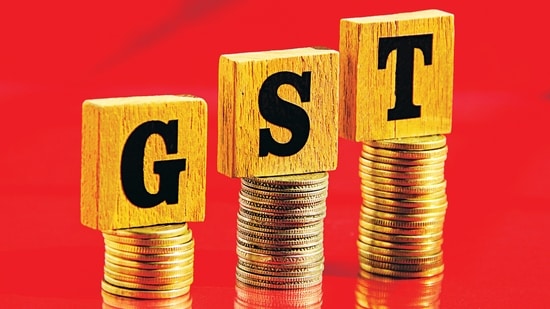The GST Council at its meeting on Tuesday is likely to deliberate on a host of issues including taxation of online gaming, definition of utility vehicles and tightening of norms for registration and claiming ITC.
The Council, chaired by Union finance minister and comprising state representatives, is also likely to clarify on GST rates applicable on food and beverages sold in multiplexes, exempt GST on import of cancer drug Dinutuximab, and Food for Special Medical Purposes (FSMP) used in the treatment of rare diseases.
It is also expected to finalise contours for setting up appellate tribunal, and demand of the industry for reimbursement of full CGST and 50 per cent IGST in 11 hill states under the ‘scheme for budgetary support’.
The Council is likely to provide for mandatory physical verification of the business premises of “high risk” applicants before granting of GST registration, as well as reduced time for submitting Pan-linked bank account details to GST authorities.
Also, a new rule in GST law under which businesses would be required to explain the reasons for excess input tax credit (ITC) claimed or deposit the amount with the exchequer is likely to be discussed.
The Law Committee, comprising tax officers from Centre and states, have opined that where the ITC availed in GSTR-3B return exceeds the amount of ITC available in accordance with the auto-generated statement GSTR-2B by a specified threshold, the registered person may be intimated on the portal about such difference and be directed to either explain the difference or pay the excess ITC along with interest.
The Committee has suggested that the provision should kick in if the difference is more than 20 per cent and more than ₹25 lakh.
GST Council is likely to take a final call on the recommendation of the Committee in its 50th meeting on Tuesday.
The report of the panel of 8 state finance ministers, convened by Meghalaya Chief Minister Conrad Sangma, on taxation of online gaming, horse racing and casinos is also slated to be discussed in the meeting.
The GoM (group of ministers) had a broad agreement that a 28 per cent GST should be levied on all the three supplies, but a consensus eluded on taxability of online games with Goa suggesting that an 18 per cent tax should be levied only on platform fees and contribution to prize pool should be tax exempt.
A final view on taxation rate as well as whether tax is to be levied on the GGR or fees charged by the platform; or on the full face value of bets put in by players of online gaming, horse racing and casinos would be taken by the GST Council.
A clarity on taxation of Multi Utility Vehicles (MUV) or multipurpose vehicles or Crossover Utility Vehicles (XUVs) for levy of a 22 per cent compensation cess over and above the 28 per cent GST rate is also expected.
The fitment committee, comprising Centre and state tax officers, has recommended that all utility vehicles, by whatever name called, would attract a 22 per cent cess provided they meet three parameters — length greater than 4-metre, engine capacity greater than 1,500 cc and ground clearance in ‘un-laden condition’ of more than 170 mm.
The fitment committee has also suggested to the GST Council to clarify that food and beverages served in cinema halls be taxed at 5 per cent and not 18 per cent as was being done in some multiplexes.
However, if the sale of cinema ticket and supply of eatables such as popcorn or cold drinks etc. are clubbed and sold together, the entire supply should be treated as composite supply and taxed as per the applicable rate of the principal supply, which in this case is cinema ticket.
Currently, movie tickets below ₹100 are taxed at 12 per cent, while those above the threshold attract an 18 per cent GST.
Import of cancer medicine Dinutuximab (Qarziba) by individuals for personal use attract a 12 per cent IGST. The fitment committee said that the medicine, which costs ₹36 lakh, should be exempted from GST as patients usually raise money through crowdfunding.
Among other things, the Council is also likely to decide on TCS liability of suppliers engaged in e-commerce trading through government’s Open Network for Digital Commerce.
Also satellite launch services by private players are likely to be exempt from GST.
